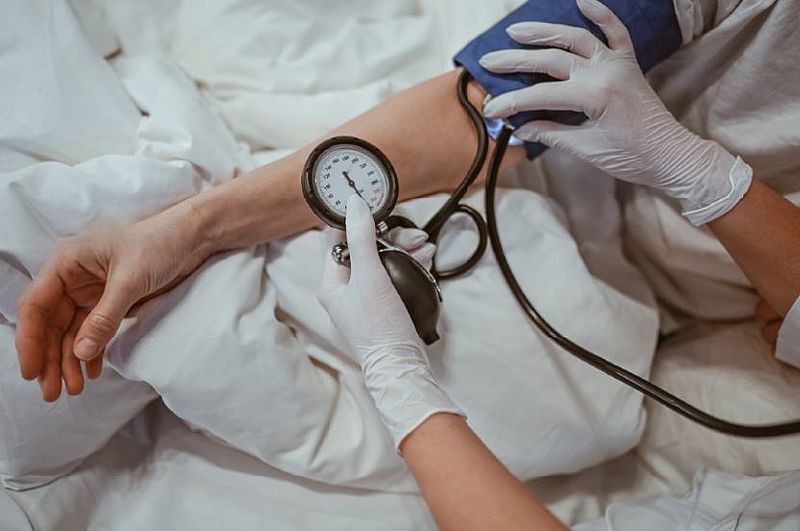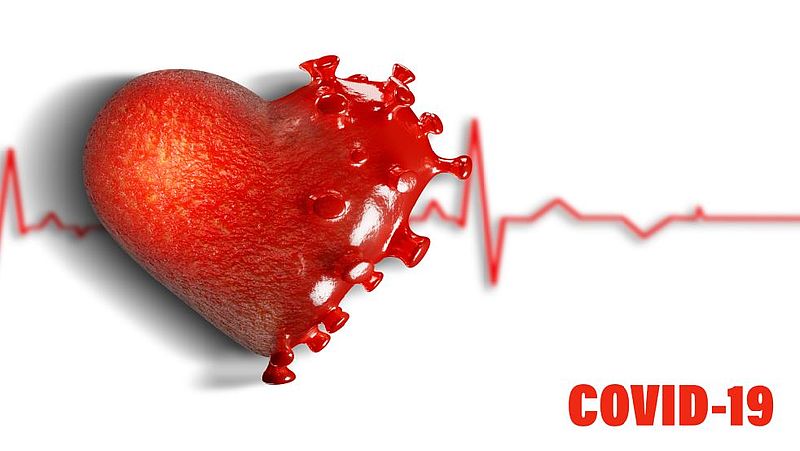For their study, the researchers examined 32 patients treated in the hospital for their COVID-19 disease. In 18 study participants, elevated levels of the biomarker troponin indicated that the heart was damaged. Fourteen patients did not have elevated troponin levels. The researchers measured weakened heart function in both groups, affecting 66 per cent of patients overall. "This high proportion surprised us because it was more than we would have expected based on the symptoms," says Dr Ludwig Weckbach from the LMU Hospital's Medical Clinic and Polyclinic I.
Sixteen of the COVID-19 patients with elevated troponin levels had worsened heart function, compared to five people in the group without elevated troponin levels.
Cardiac function was assessed between the fifth and 21st day of hospitalisation. Susceptible ultrasound methods, such as 3 D ultrasound and so-called strain ultrasound, were used for this. "These methods can also detect restrictions that would not be noticeable in conventional ultrasound," Weckbach explains. He and his colleagues use them to measure how much blood the heart ejects and how well it relaxes again after contraction.
Often both chambers of the heart are affected
Most patients had both ventricles affected, and this was particularly common in the group with myocardial damage. Here, the values for both ventricles had deteriorated in 80 per cent of the patients. "The good news is that the heart function recovered in most patients. This was the result of a follow-up check after two months," says Weckbach.
The group of patients studied was very heterogeneous. In addition to previously healthy people, some already had previous illnesses, such as high blood pressure or diabetes. The average age was 62 years. According to the Munich researchers, their study participants were thus composed roughly like the groups of hospitalised COVID-19 patients examined in more extensive studies. Compared to people with a healthy heart, patients with heart damage were older, had more pre-existing conditions, and needed more intensive care and ventilation.
Appropriate methods to assess heart function
Elevated troponin levels were found in the first COVID-19 patients treated in a hospital in China. Meanwhile, researchers worldwide estimate that acute damage to the heart can occur in 30 per cent of COVID-19 patients. What this damage means for heart function is now gradually being researched. "Our study has shown that advanced ultrasound methods are more appropriate for detecting how SARS-CoV2 infection affects heart function," says Weckbach. More extensive controlled studies are now needed to find out what the temporarily worsened heart values mean for the long-term course of the disease.
Original publication: Left and right ventricular dysfunction in patients with COVID-19-associated myocardial injury. Bieber S, Kraechan A, Hellmuth JC, Muenchhoff M, Scherer C, Schroeder I, Irlbeck M, Kaeaeb S, Massberg S, Hausleiter J, Grabmaier U, Orban M, Weckbach LT. Infection. 2021 Jun;49(3):491-500. Epub 2021 Jan 30.
DOI: 10.1007/s15010-020-01572-8
Contact: Christine Vollgraf, Press and Public Relations, German Centre for Cardiovascular Research (DZHK), Tel: 030 3465 529 02, presse(at)dzhk.de
Scientific Contact: Dr. Ludwig T. Weckbach, LMU Klinikum, ludwig.weckbach(at)med.uni-muenchen.de



